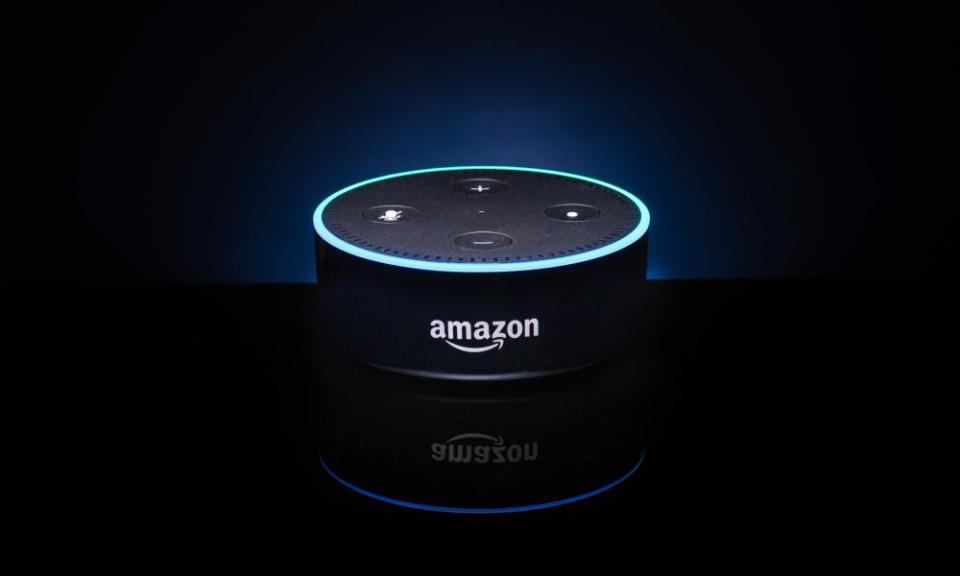Radio industry calls for government protection from smart assistants

Could Alexa kill the radio star? The government is considering introducing legislation to ensure that Amazon and other tech companies do not abuse their growing power over UK airwaves.
Millions of Britons have bought voice-controlled devices in recent years, principally Amazon’s Echo and Google’s Assistant. Most are used for listening to audio, with many households using them as replacements for traditional standalone radio sets in kitchens and bedrooms.
British radio broadcasters including the BBC and the main commercial radio groups now fear they have inadvertently handed control over their output to large technology companies who make smart speakers. They fear the US-based technology companies will hoard data on users’ listening habits, could be tempted to slip their own adverts into radio broadcasts, and may ultimately make it harder to find UK-produced content.
The BBC is particularly concerned by research suggesting that when BBC material is consumed through a smart speaker or other third party device, audiences are substantially less likely to mentally associate it with the BBC. This has potentially enormous implications for the future of the licence fee and convincing audiences to pay for the BBC in the future.
The government-commissioned digital radio and audio review, which asked industry voices for their views on the future of radio, has now asked the government to propose legislation to force Amazon and other companies to carry UK radio services on a free-to-air basis. A similar lobbying battle is currently being fought by UK television channels to secure so-called “prominence” on the home screens of modern television sets.
Radio stations also want a law to prohibit technology companies from inserting their own advertisements without the radio broadcaster’s consent, as well as legislation requiring car manufacturers to continue to prominently display radio stations on car dashboards.
The newly appointed media minister, Julia Lopez, said the government would reflect on the findings and “consider new rules” to protect the future of the British radio industry as part of forthcoming broadcasting regulation.
The radio report also concluded that FM radio services should be maintained in the UK until 2030, 15 years later than originally planned. The analogue signal serves some rural areas that are not reached by digital broadcasts and is still popular with older people and for local and community stations.
However, the writing is on the wall for medium-wave broadcasting, even though 6.5million adults still use AM signals to listen to stations such as BBC 5Live, talkSport, and Absolute Radio every week. The report concluded that the gradual turning-off of medium-wave broadcasts should accelerate “in the next few years”.
The British radio industry is facing a demographic timebomb. In the new report, it has renewed calls to scrap regulations that limit the ability to rebrand stations and change formats, as well as asking for continued government financial support for the Audio Content Fund to produce material for under-served audiences.
Though overall radio listenership remains high, it is much lower among younger listeners and people from ethnic minority backgrounds, many of whom feel they are not represented by existing stations and are instead switching to podcasts and streaming music services.

 Yahoo Finance
Yahoo Finance 